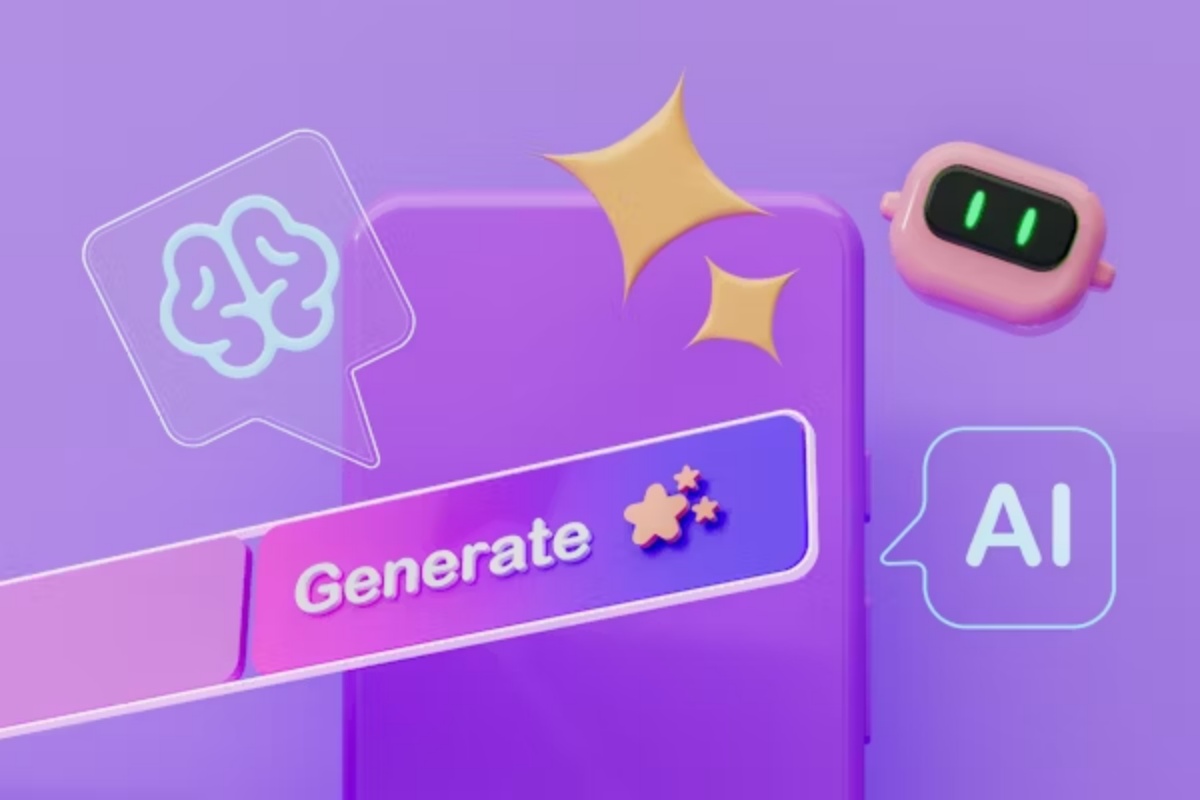In the last few years, Generative Artificial Intelligence (Generative AI) has rapidly evolved from a niche area of machine learning to a transformative force reshaping nearly every industry — from entertainment and education to healthcare and engineering. This explosive growth begs the question: Why should you learn Generative AI? Whether you’re a student, professional, business leader, or simply curious about the future, the answer lies in the profound impact this technology is having on the world and the countless opportunities it unlocks.
What is Generative AI?
At its core, Generative AI refers to AI systems that can create new content. Unlike traditional AI, which focuses on analyzing and predicting from existing data, generative models can produce text, images, music, videos, code, 3D models, and more — often with human-like creativity.
Some well-known examples of generative AI tools include:
- ChatGPT for generating natural language text,
- DALL·E and Midjourney for creating digital images,
- Sora for generating video content,
- GitHub Copilot for assisting in writing code,
- Runway and Synthesia for multimedia and virtual human creation.
These tools aren’t just novelties. They are shaping how we communicate, design, build, and innovate.
1. Stay Relevant in a Changing World
Technology is evolving rapidly, and staying current is more critical than ever. Generative AI is not just a trend — it is a paradigm shift. Learning how it works, how to use it, and how to create with it ensures that you remain relevant, competitive, and forward-thinking in your career or business.
Whether you’re a marketer, writer, designer, engineer, or analyst, understanding generative AI tools can make your work faster, more impactful, and more innovative. It’s already a part of modern workflows — and it’s only expanding.
2. Enhance Creativity and Productivity
Generative AI empowers you to amplify your creativity and accelerate production. For example:
- Writers can generate drafts, brainstorm plot points, or even write books with AI assistance.
- Designers can visualize concepts in seconds rather than hours.
- Developers can automate repetitive coding tasks or generate new software components.
- Educators can build customized lesson plans and learning materials instantly.
Instead of replacing human creativity, generative AI acts as a collaborative partner — giving you more room to focus on ideas, refinement, and execution.
3. Unlock New Career Opportunities
As generative AI adoption increases, so does the demand for individuals who understand it. Companies are hiring:
- Prompt engineers
- AI trainers
- Generative AI researchers
- Product managers with AI knowledge
- Creative technologists who blend art with machine learning
Even traditional roles are evolving. Adding generative AI to your skill set gives you a competitive edge in job markets and future-proofing your career.
4. Solve Complex Problems in New Ways
Generative AI opens up novel solutions to problems that were previously too time-consuming, costly, or complex. For example:
- In healthcare, it helps generate synthetic medical data for safer model training.
- In architecture, it suggests creative designs and floor plans.
- In science, it helps simulate molecular structures for drug discovery.
These tools accelerate research, enhance experimentation, and reduce costs — pushing innovation boundaries in nearly every field.
5. Empower Entrepreneurship and Innovation
Generative AI lowers the barrier to entry for startups and creators. You no longer need large teams or expensive resources to:
- Build prototypes,
- Develop marketing assets,
- Launch e-commerce stores,
- Design mobile apps,
- Create content for social media.
With a small budget and knowledge of generative AI, solopreneurs can now do the work of entire departments, leveling the playing field for innovation.
6. Gain a Deeper Understanding of Artificial Intelligence
Learning about generative AI gives you insights into the broader AI landscape — including deep learning, natural language processing, computer vision, and reinforcement learning.
Understanding how models like GPT (language), Diffusion Models (images), GANs (generative adversarial networks), and VAEs (variational autoencoders) work not only helps you use the tools but also positions you to build the next generation of AI applications.
7. Ethics, Responsibility, and Influence
Generative AI raises important ethical questions:
- Who owns AI-generated content?
- Can we trust AI-generated news or videos?
- How do we prevent misuse?
By educating yourself, you gain the ability to participate in shaping the ethical use of AI in society. Whether it’s advocating for transparency, fairness, or responsible deployment, your voice matters in the evolving AI landscape.
8. Learn Once, Benefit Everywhere
The knowledge and skills you gain from studying generative AI are highly transferable. You’ll learn:
- Critical thinking and analytical skills,
- Programming and data science fundamentals,
- Model development and deployment,
- Human-centered design and UX for AI tools.
These skills apply to dozens of industries and disciplines — making your investment in learning generative AI versatile and long-lasting.
9. Be Part of a Global Movement
Generative AI isn’t just a technological evolution — it’s a cultural revolution. Artists, educators, engineers, scientists, and storytellers from all over the world are contributing to an ever-growing body of knowledge, tools, and creations. By learning generative AI, you join a community of curious and driven minds working toward a more creative, efficient, and intelligent future.
Conclusion: The Time is Now
Generative AI is not just a buzzword — it’s a transformational force with the potential to reshape how we work, learn, and create. Whether you’re a professional aiming to stay competitive, a student planning your future, or an entrepreneur chasing your dream, learning generative AI is one of the smartest investments you can make today.
As with any technology revolution, the early adopters gain the most. The tools are accessible. The resources are abundant. And the impact is profound. The question is not whether you should learn generative AI — it’s how soon you can start.

